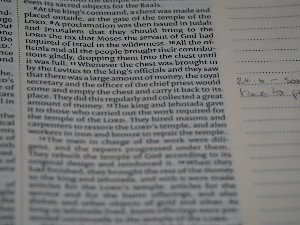Agus Mulyanto, Muhammad Dedad Fajarsodiq Akastangga
Pandangan Islam Terhadap Kemajuan Teknologi Informasi
Introduction
Pandangan islam terhadap kemajuan teknologi informasi. Pandangan Islam terhadap kemajuan teknologi. Bahas etika, syariah, dan nilai moral dalam pemanfaatan teknologi digital. Seimbangkan manfaat dan risiko untuk kesejahteraan umat manusia.
Abstract
Advances in information technology have brought about major changes in various aspects of human life. Rapid developments in this field include innovations in communications, education, health, economics and industry. Information technology has enabled fast and efficient access to information, increased productivity, and opened up new opportunities in an increasingly connected global world. However, behind all this progress, there are also challenges related to data security, privacy and ethics in the use of technology. In the Islamic view, information technology, like all forms of science, is a neutral tool. Islam views that technological advancements should be used for good purposes and in line with the moral and ethical values taught by religion. Technology should be utilized to strengthen social relations, spread goodness and improve the welfare of mankind, not to damage or cause destruction. The principles of sharia and maqashid sharia (the objectives of sharia) can serve as a guide in utilizing information technology to stay within the framework that is in accordance with Islamic teachings. A review of the benefits and harms of information technology shows that there are two sides that must be considered. On the one hand, this technology provides many benefits, such as increasing access to knowledge, accelerating communication, and facilitating various daily activities. On the other hand, possible harms include misuse of information, the spread of hoaxes, over-dependence, and potential moral damage if not balanced with proper control and guidance. Therefore, it is important to manage and utilize information technology wisely, in accordance with Islamic teachings that emphasize the balance between benefits and potential damage.
Review
The abstract presents a timely and highly relevant inquiry into "Pandangan Islam Terhadap Kemajuan Teknologi Informasi" (Islamic View on Advances in Information Technology). It effectively outlines the dual nature of technological progress, acknowledging both its transformative benefits across various sectors and the inherent challenges related to security, privacy, and ethics. The core premise, that Islam views technology as a neutral tool to be employed for beneficial and morally upright purposes, aligns well with established Islamic principles. This initial framing sets a promising stage for a discussion on how religious values can guide technological integration, emphasizing the need for utilization that strengthens social bonds and human welfare. While the abstract articulates the general principles, such as the neutrality of technology and its alignment with moral values, the full paper would benefit significantly from a more detailed exposition of how "sharia and maqashid sharia" concretely serve as guiding frameworks. It is crucial for the paper to move beyond abstract statements and provide specific examples or case studies demonstrating the application of these principles in navigating contemporary information technology challenges. For instance, exploring how Islamic jurisprudence might address data governance, algorithmic ethics, or the spread of misinformation in digital spaces would greatly enhance the paper's analytical depth. The abstract's mention of balancing benefits and harms is excellent, but the methodology for achieving this balance through an Islamic lens requires robust elaboration. Overall, this paper addresses a critical intersection of faith and technology, offering a much-needed perspective in an increasingly digitized world. Should the full manuscript successfully delve into the specific mechanisms and practical implications of applying Islamic teachings to information technology ethics, it has the potential to be a valuable contribution to both Islamic studies and technology ethics discourse. The abstract demonstrates a clear understanding of the complexity of the subject matter, and a comprehensive treatment that provides actionable insights grounded in Islamic scholarship would make this a highly impactful and commendable work.
Full Text
You need to be logged in to view the full text and Download file of this article - Pandangan Islam Terhadap Kemajuan Teknologi Informasi from Kaunia: Integration and Interconnection Islam and Science Journal .
Login to View Full Text And DownloadComments
You need to be logged in to post a comment.
Top Blogs by Rating
Beyond the Stereotype: Unpacki...
By Sciaria
Unseen Engineers: Nanotech's B...
By Sciaria
The Healing Power of "Ahhh": M...
By Sciaria
Favorite Blog
The Silent Language of Your Bo...
By Sciaria
Reclaim Your Day: Mastering th...
By Sciaria
The Gamification of Governance...
By Sciaria
Related Research
Multitemporal aerial image analysis of a calanchi badland in central italy (upper orcia valley, tuscany). a quantitative assessment of erosion rates and dynamics
The sutherland book: an overlooked resource?
Development of interactive learning media using adobe flash on the subject of electronic control systems
Share
Notice Board
- DEVELOPMENT OF RARE PLANT NURSERIES IN SUPPORT OF CONSERVATION OF THE UNNES CAMPUS SURROUNDING AREA
- SYSTEEMINEN MALLI JA SUHDEPERUSTAINEN KäYTäNTö GERONTOLOGISESSA SOSIAALITYöSSä JA SOSIAALIOHJAUKSESSA
- THE EFFECT OF INTERACTIVE MUTIMEDIA BASED ON ARTICULATE STORYLINE 3 ON STUDENT LEARNING OUTCOMES IN ELEMENTARY SCHOOLS





